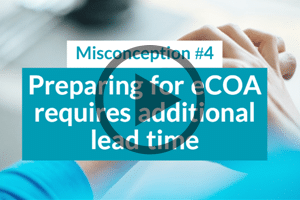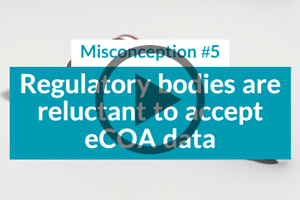A general misconception is that eCOA implementation will generate additional costs.
Early investment is required for eCOA implementation that may add some costs at study startup. But this investment will be balanced by saving the cost of non-compliance and poorer data quality generated by paper questionnaires and diaries.
Consider all the data management and site monitoring activities, as well as the extended study closure time that paper-based data collection generates! The costs associated with these activities are significantly minimized with eCOA.
15 years ago, researchers examined the results of a Phase III clinical trial using eCOA compared to a similar study using paper COA. This showed that the reduction in error rate with eCOA produced more sensitive results, which could have “reduced the study sample size by nearly 50%”.1 This has an enormous impact on drug development timelines and costs!
Isn’t this critical here that all stakeholders see that the value of eCOA also lies in the absence of the hidden costs that paper generates?
Discover more about misconceptions on eCOA barriers:
Reference
[1] “Proving the eDiary Dividend”, McKenzie, S., Applied Clinical Trials, 2004


















